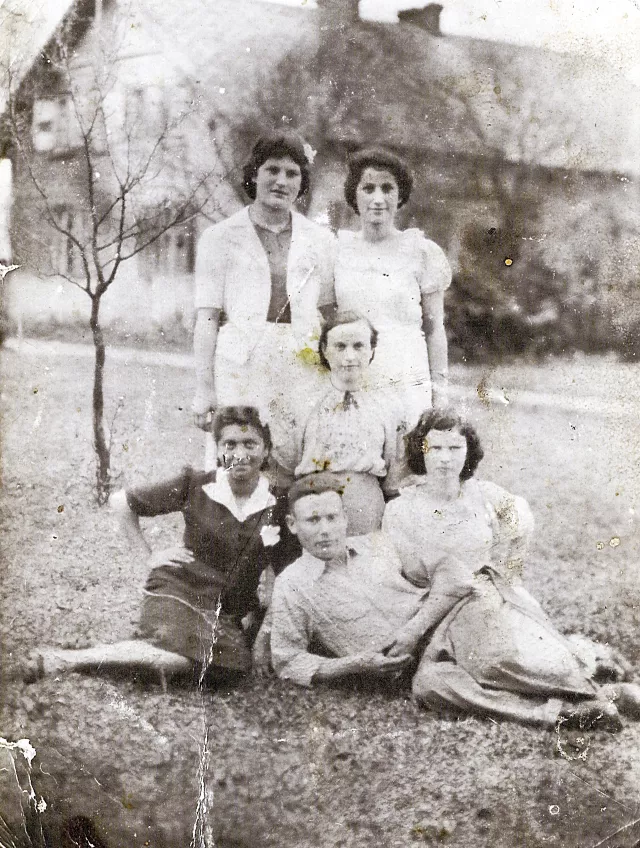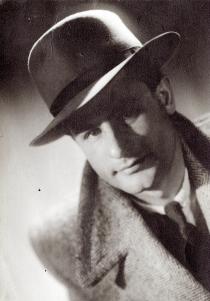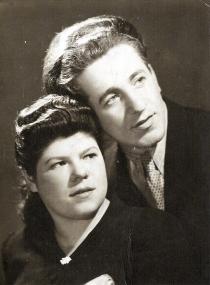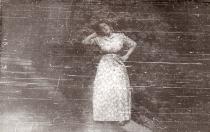These are my friends from Poalei Zion. I don’t know where and when exactly the photo was taken. I don’t remember the names of all the people in the photo, only three of them: the girls who are standing behind are from right: Tajblum and Sieradzka, the man in front of them is Hersz Berlinski. He was a soldier in the Jewish Fighting Organization in the Warsaw Ghetto Uprising. He was killed in September 1944 in Warsaw.
In the first years after we moved to Lodz, when I was already earning money, I began to sympathize with Poalei Zion Left. I was an activist, like my father. There were many trade unions at the time; the tailors had their union, the shoemakers had theirs; each profession had their union. When there were strikes, we went around the workshops looking for strike-breakers. Then there were political issues. There were communist Jews; bundists who were Jewish socialists belonged to the Polish Socialist Party. They said that Jews should feel at home all over the world, in every country. Wherever they live, they have to fight for their rights. This Zionistic trend was created by a Zionist from Austria. Herzl was his name. He was a philosopher, published books and said that each nation should have its own country. It's like this: when a dog has an owner, a doghouse, then when a stranger comes, the dog will raise its tail, bark, it won't be afraid. But when the dog doesn't have an owner, then it's enough to stomp your foot at it and it will run away at once.
One time they even arrested me; I had such an incident. Before the war, they summoned me to the police station, on Kilinskiego Street, it was the political police. I was still a boy, I didn't know why and what for. I was afraid, because if someone was summoned there, nobody knew if he'd come back. The date was set two weeks later. So I went. Three of them were sitting at a table. They started interrogating me, fired lots of questions at me. Where I go, if I belong to the Party, where I work. Each one of them asked me questions, different ones, also political ones. And it was like this: this trade union of ours was on 57 Piotrkowska Street, on the third floor at the end of the hall. Because there were more leftists among us, we once organized an event on Lenin, Liebknecht and Luxemburg. It was a kind of political discussion. We prepared such events often, but usually they were official and registered. Everything had to be legal. I didn't even go to this event. It turned out it hadn't been legalized.
At the police station they showed me an invitation, written out in my name. 'Can you speak Yiddish?' 'Yes, I can.' They showed me a piece of paper, with other smaller pieces of paper stuck to it. They must have had some Jew in that police who could read. They showed it to me and asked me what it was. I had no reason to lie. I didn't even know what I was reading. So I finally told them that it was an invitation in my name, for such and such a meeting, but that I never received it. And that was the truth. It hadn't been delivered to me. When the police came in, then the person who had it in his pocket, must have torn it up, so they took all the little pieces and put them together and there must have been one who could decipher this writing. He pieced it all together and he got it. They had to let me go. I got away, I was pleased.








































